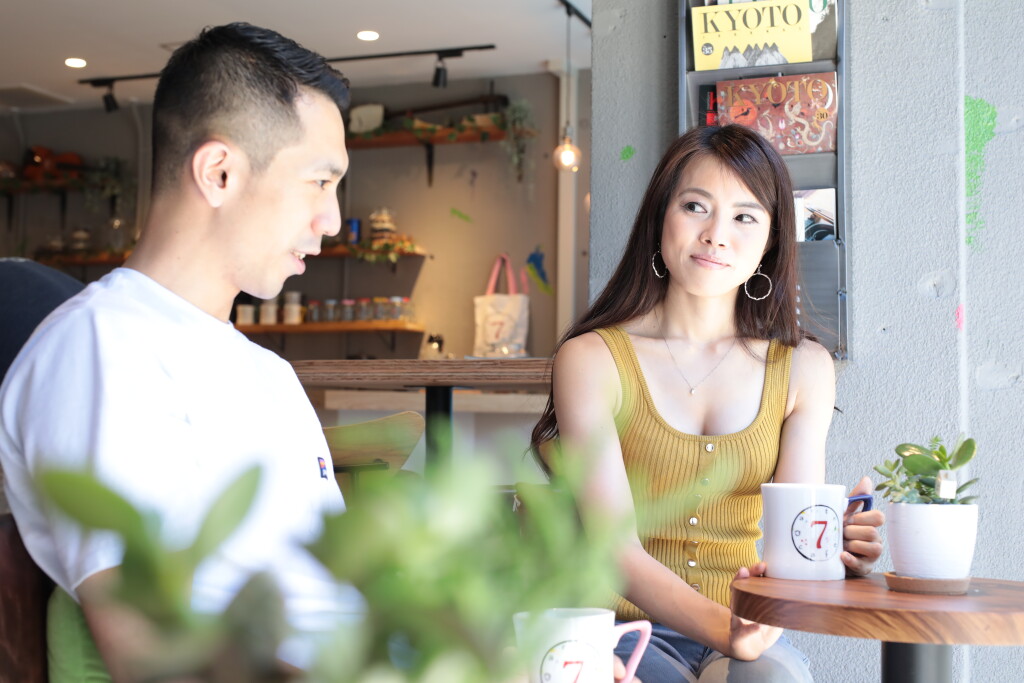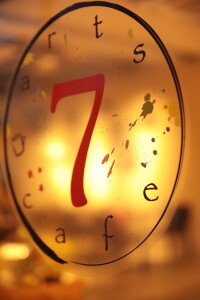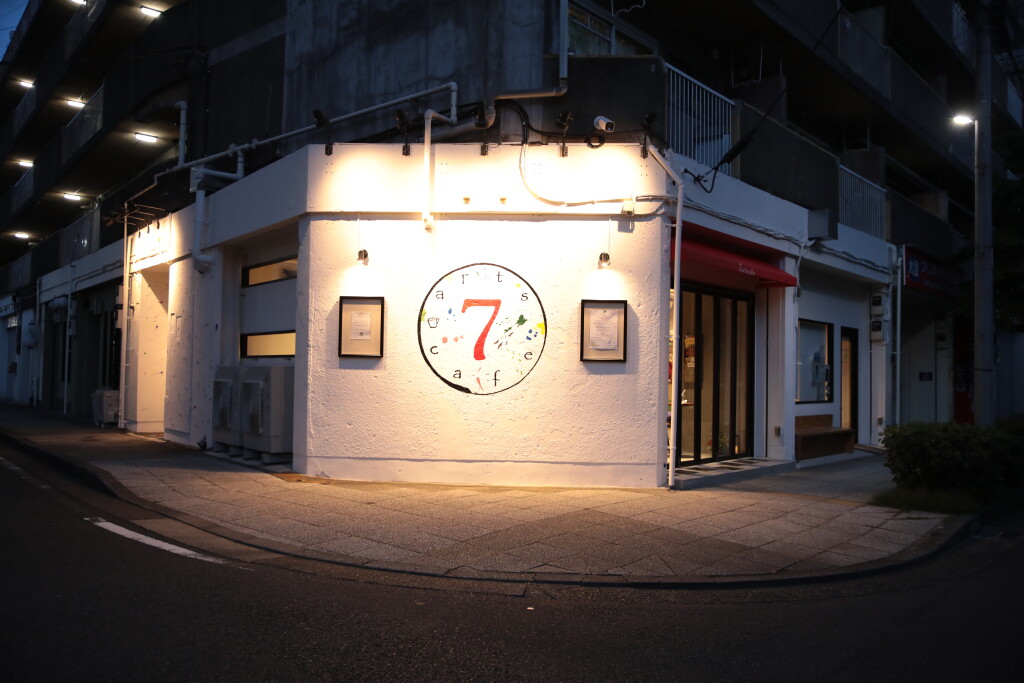We introduced Joseph Amato in the previous issue and focus here on his new endeavor, 7artscafe. While we review the cafe itself, we want to talk more about its conception and ultimate aim. It’s more than a cafe, after all; it’s a community space that could change the way we appreciate the cultural arts in Yokohama.
Amato notes that inspiration for the space harks back to the Beat Generation of the 1950s, when this loose group of poets and artists lived in New York (before many shifted to San Francisco). There was a 7 Arts Coffee Gallery in Soho, near New York University, which was a site of their activity. “The place was still there when I was a student,” says Amato. “I borrowed from that same idea, which was to celebrate the visual and performing arts, music, dance, poetry, and more.”

There are of course multi-use spaces all over Yokohama, but Amato intends to bring dynamic, new programming and more robust engagement. As previously mentioned, he launched an NPO for the arts called Japanese Culture Promotion and Management (JCPM). “It was like a university without buildings,” Amato smiles, “until now.”
Already, Amato is working with Yokohama-based NPO Dance Archive Network (DAN), which is internationally famous in part for showcasing the artistic work and teachings of Butoh dancers Kazuo and Yoshito Ohno. We can almost certainly look forward to performances and workshops from DAN. Amato also reveals that he is planning a Friday-night film series to celebrate independent and experimental cinema. He adds, “I want to encourage people to put away their phones, listen to talks about film, and be inspired.”
 For the last four years, Amato has been an organizer of workshops, lectures, symposiums, and educational programs around the world. No doubt, some of these same presenters will be featured at the space. “These last six months, meeting people to talk about 7artscafe, my business card collection has grown enormous,” Amato laughs. With success, we imagine that his resources will grow much larger.
For the last four years, Amato has been an organizer of workshops, lectures, symposiums, and educational programs around the world. No doubt, some of these same presenters will be featured at the space. “These last six months, meeting people to talk about 7artscafe, my business card collection has grown enormous,” Amato laughs. With success, we imagine that his resources will grow much larger.
That could mean a ‘university’ to rival even established art schools in Japan. But why shouldn’t it? Yokohama has always been a crossroads of art and culture. Now, however, they’ll intersect in a space like no other.


